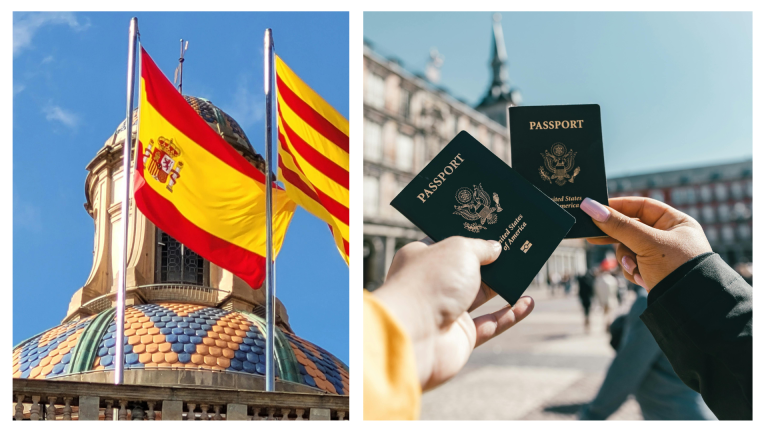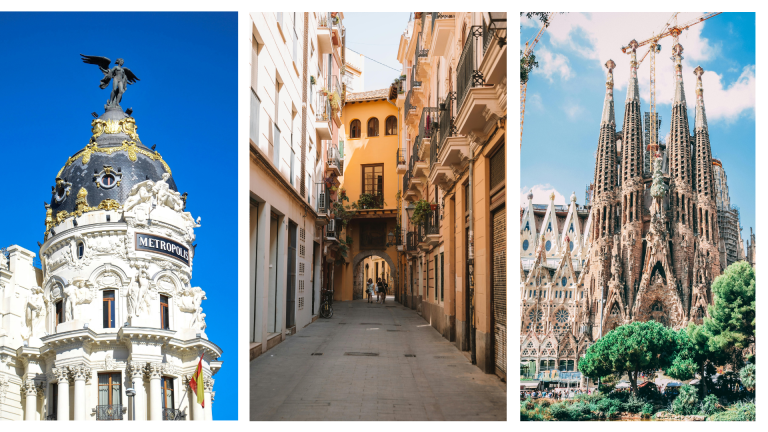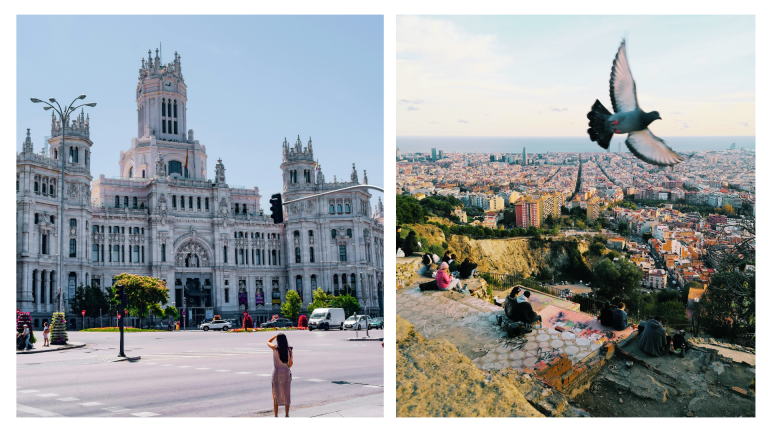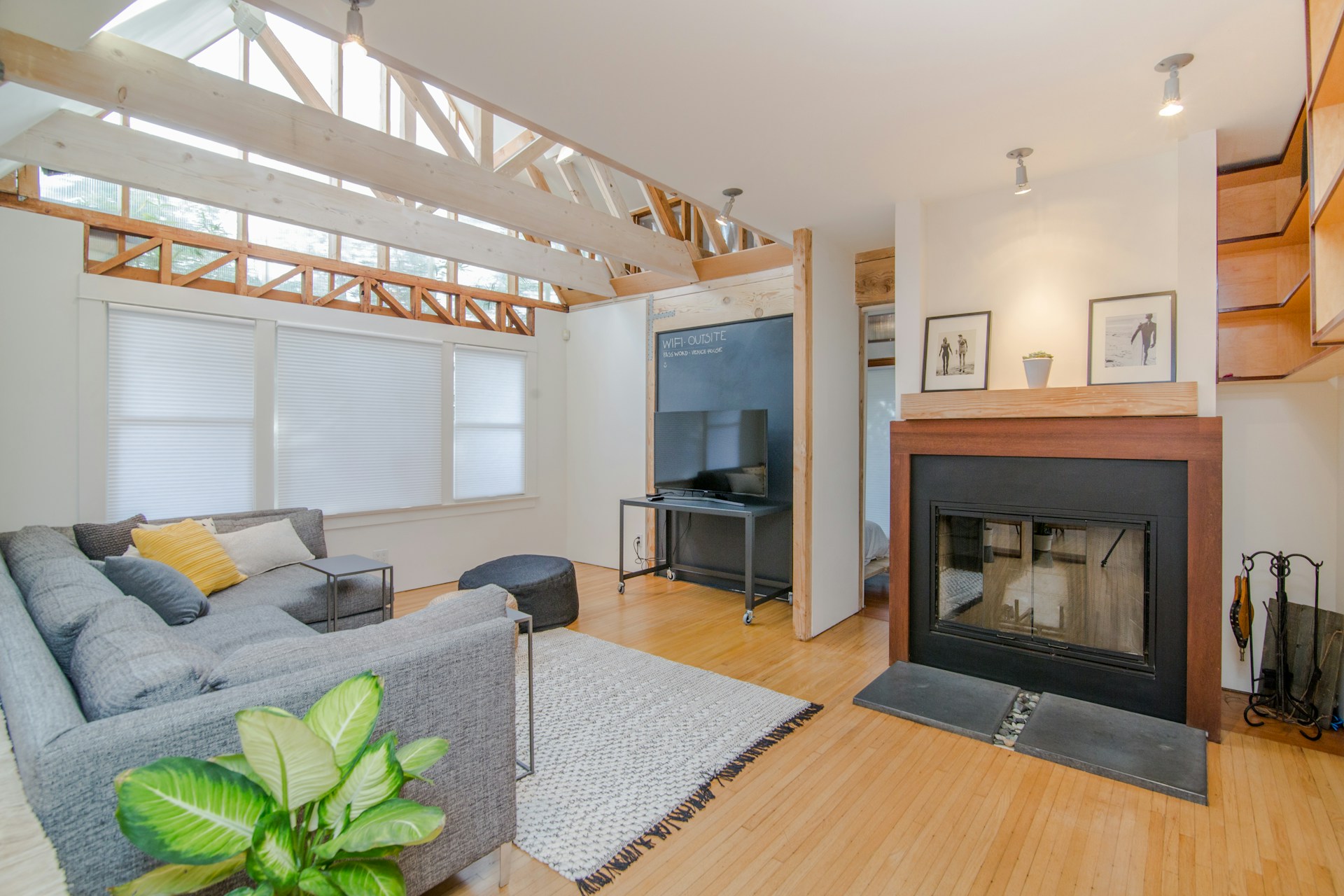Ultimate Guide for Digital Nomads in Spain
Cost of living, visas, recommendations and everything you need to know to start packing your bags and live as a digital nomad in Spain.
Since the Spanish government introduced the new specific visa for digital nomad Spain enthusiasts, making it easier for remote professionals to enter, over 700 thousand travelers are now enjoying their stay in the country.
Spain is among the top ten countries with the highest quality of life in the world, and it is not surprising that it is one of the preferred destinations for digital nomads.
The process of planning a trip can be stressful. That’s why at Holafly we provide you with a guide with information on everything you should prioritize for your stay in Spain. From the visa process, recommendations for accommodation and coworking spaces, the taxes you will face as a digital nomad in Spain, and how to access the health system.
Why choose Spain to live as a digital nomad?
Spain is one of the preferred destinations for digital nomads, and there are several reasons that support this trend.
Firstly, metropolises such as Barcelona and Madrid host numerous networking events and have coworking spaces where it is easy to meet other professionals with similar interests.
The quality of life in Spain is remarkable. Cities are full of parks and beaches; the Mediterranean climate, characterized by mild winters and warm summers, contributes to a more pleasant living experience.
Spain’s world-renowned gastronomy also adds significant appeal, allowing you to enjoy a variety of flavors and healthy dishes.
Spain has the lowest crime rates in Europe, providing a sense of security that appeals to its residents and digital nomads alike, making it an ideal choice for those seeking a stable and welcoming environment.
Spain’s connectivity is another plus. Its geographical location facilitates access to other European destinations. It has international airports and fast and comfortable trains that connect with famous cities.
Finally, Internet access in Spain is of high quality. The digital infrastructure is robust, with average connection speeds exceeding 100 Mbps in many urban areas.
Spain combines community, quality of life, security, connectivity and excellent internet access, making it an unbeatable choice for those seeking a new temporary or permanent home as a digital nomad.
Digital nomad visa in Spain

Until recently, in 2023, the Spanish government introduced the digital nomad visa created to facilitate the residence and work of remote professionals in the country. This visa allows freelancers to reside and work in Spain.
Characteristics of the digital nomad visa in Spain
- Duration: This visa allows residency in Spain for a period of up to one year, with the possibility of renewal for five years.
- Requirements: You must prove that you work remotely for a company outside Spain or that you are self-employed with international clients. Proof of minimum income is also required.
- Tax benefits: Holders of this visa can benefit from a favorable tax regime during their first years in the country.
Check out our article on the digital nomad visa in Spain to discover its advantages, requirements, costs, and detailed information about the application process. Start planning your stay in Spain today!
Important: If you are a frequent traveler and want to stay connected without worrying about expensive roaming or looking for a new SIM at every destination, Holafly’s subscription plans are for you. With a single eSIM, enjoy internet in more than 170 countries for a fixed price and no surprises on your bill. travel without limits and connect easily and securely! 🚀🌍

Do you have to pay taxes as a digital nomad in Spain?
If you reside in Spain for more than 183 days a year, you will be considered a tax resident and must comply with local tax obligations. This includes income tax, where rates vary depending on your income, and VAT, which is 21%.
If you have the digital nomad visa, you can benefit from a favorable tax regime during the first years of your stay in Spain. If you are qualified as a “non-resident” you could enjoy a flat tax rate of 24% instead of up to 47% for normal tax residents.
Double Taxation Treaties
Spain has double taxation treaties with more than 60 countries, including the United States, Mexico and several European Union countries. This means that, if your home country is one of them, you will avoid filing your taxes twice.
At Holafly, we have prepared a guide on taxes for digital nomads in Spain where we solve your doubts on this subject. Don’t wait—check it out now!
Top cities to live and work as a digital nomad in Spain

Barcelona
Barcelona stands as a hub of creativity and modernity. This city, with its unmistakable Gaudi architecture and striking neighborhoods, such as the Gothic and Eixample, are a unique experience for digital nomads.
Barcelona’s stunning beaches provide the perfect place to unwind after a productive workday, while its vibrant cultural scene—featuring festivals, museums, and an exceptional culinary landscape—offers endless inspiration.
Madrid
As the heart of Spain, Madrid is full of opportunities. Its mix of history and modernity is reflected in every corner, from the majestic Royal Palace to the modern amenities of the Malasaña neighborhood.
The city is incredibly accessible with its extensive public transportation network, endless cultural offerings and lively nightlife, Madrid ensures that there is always something to do after the laptop is closed.
Valencia
Valencia is the jewel of eastern Spain, known for its warm climate and relaxed atmosphere. This coastal city seamlessly blends modernity with tradition, reflected in its famous City of Arts and Sciences and charming historic neighborhoods.
The quality of life in Valencia is affordable, allowing digital nomads to enjoy a balanced lifestyle without sacrificing comfort. Coworking spaces are numerous, and the culture of paella and festivals, such as Las Fallas, make this city a fascinating place to live and work.
Where to stay during your stay in Spain?
| Colivings | Spaces where you can live, work and socialize with other digital nomads in Spain. Search on platforms such as Uniplaces or Coliving.com. They usually cost between $450 and $1,000 per month, depending on location and amenities. |
| Hotels and apartments | For shorter stays, there are options on Airbnb or Booking.com. Prices start from $65 per night for basic accommodations, with monthly rates between $1,600 and $3,200 for more comfortable options. |
| Home exchange | If you travel often, consider platforms such as HomeExchange where you can exchange your home with other travelers, often allowing you to stay at no additional cost. |

Coworking spaces for a digital nomad in Spain
| WeWork | With locations in several cities in Spain, WeWork is known for its modern atmosphere and spacious facilities. Rates start at $350 per month. |
| Impact Hub | Present in several cities, it focuses on sustainability and social entrepreneurship, with fees starting at $300 per month. |
| Regus | Regus offers flexibility and workspaces across the country, depending on your needs. Rates start at around $350 per month. |
How is the internet connection in Spain?
The internet speed in Spain is competitive, with an average of 100 Mbps in major cities. Holafly’s eSIM for Spain is very easy and quick to install, and enjoy a stable connection and unlimited data at all times during your stay in Spain.

We also highlight public spaces where you can access free Wi-Fi, allowing you to work outside of a coworking space while immersing yourself in the local culture.
- Public libraries: The National Library in Madrid and many local libraries in cities like Barcelona and Valencia offer free connection.
- Parks: Ciutadella Park in Barcelona and Retiro Park in Madrid have free wifi access in several areas.
- Plazas and urban areas: Plaza Mayor in Madrid and Plaza del Ayuntamiento in Valencia offer free wifi for visitors.
- Cafes and restaurants: Chains such as Starbucks and independent restaurants in all cities usually offer free wifi connection for their customers.
Health insurance and health service quality in Spain
Access to health care
Digital nomads can access the public healthcare system if they have legal residency. Many opt for private health insurance. Spain has a high-quality healthcare system, with hospitals and clinics throughout the country.
Recommended health insurance
Some international health insurance policies that are popular among digital nomads for their broad coverage include:
- World Nomads: This insurance is popular among frequent travelers and offers coverage that can vary depending on the level of protection. Rates typically start around $45 to $70 per month, depending on the age of the insured and the coverage selected.
- SafetyWing: Provides comprehensive coverage specifically for digital nomads and rates start at about $45 per month for basic coverage.
Basic living expenses for a digital nomad in Spain
Transportation and mobility
In Spain, public transportation is accessible and efficient. In Madrid, a single metro or bus ticket costs about $1.70, while in Barcelona the price is about $2.30 for both services.
Streetcars in Barcelona have a similar cost to the metro. In addition, there are monthly passes that offer cheaper fares.
Regarding driving, foreign licenses issued by European Union (EU) and European Economic Area (EEA) countries are valid in Spain as long as they are valid.
If your license is from a country outside the EU and EEA, you will need to obtain an international driver’s license to be able to drive legally.

Managing the finances of a digital nomad in Spain
Among the most recommended banks is BBVA, which offers commission-free accounts for foreigners and a wide network of branches. There is also N26, a popular digital bank that allows commission-free transactions, which is ideal for those who need to handle multiple currencies.
It is important to consider the costs of withdrawing money at ATMs. In general, CaixaBank and BBVA ATMs usually charge between two to four dollars per withdrawal, and if the card is from the same bank or has an agreement with the bank, it does not charge a commission.
Be sure to check if your bank has agreements with local entities to minimize costs. We also recommend that you pay for your expenses by credit card since many establishments accept this type of payment.
Food costs of a digital nomad in Spain
The average cost of a meal in a restaurant in Spain is between $16 and $22 per person. If you are looking for more economical options, many daily menus offer full meals for between $11 and $13.
For shopping, supermarkets such as Mercadona and Carrefour are popular and accessible. Mercadona, in particular, is known for its competitive prices and wide range of fresh produce. Another economical option is Lidl, which also offers good prices on basic products.
If you’re looking to eat on a budget, check out local markets or tascas in cities like Valencia or Seville, where you can enjoy tapas at very affordable prices. These spots offer delicious food and a great atmosphere to relax and socialize.
Entertainment venues for digital nomads in Spain

Hiking
If you like to be in nature, you can’t miss the spectacular routes in the Pyrenees, where you can enjoy breathtaking landscapes and fresh air. Also the Sierra Nevada is famous for its trails for all skill levels.
Festivals
Spanish culture is full of life and color, and participating in festivals is a great way to immerse yourself in it.
La Tomatina, held in Buñol, Valencia, is famous for its tomato battle, while Valencia’s Fallas is an impressive spectacle of art and fire, with gigantic figures burning in a spectacular celebration.
Best seasons to be in Spain
The climate in Spain varies by region, but in general, spring (April to June) and autumn (September to November) are the best times to visit. During these months, you will enjoy pleasant temperatures and avoid the heavy tourist crowds.
To be comfortable, it is advisable to bring light and comfortable clothes for the day, but also some warm clothes, as the nights can be cool, especially in the north of the country. Don’t forget a good pair of walking shoes, as exploring the cities and nature trails will be an essential part of your experience in Spain.
Cost of living as a digital nomad in Spain
Living as a digital nomad in Spain can vary significantly in cost, depending on the city and lifestyle you choose, within an estimated monthly budget that ranges from $2,500 to $5,000.
| Concept | Average Monthly Cost |
| Accommodation (coliving) | 450-1,000 dollars |
| Accommodation (apartment) | 1,600-3,200 dollars |
| Food | 300-660 dollars |
| Transportation | 50-80 dollars |
| Medical insurance | 45-70 dollars |
| Leisure and entertainment | 100-200 dollars |
Are you ready to pack your bags and start your experience as a digital nomad in Spain? It’s a destination you can’t miss.
Frequently asked questions about being a digital nomad in Spain
The most popular cities include Barcelona, Madrid and Valencia. These cities offer a good coworking infrastructure as well as a vibrant community of digital nomads.
Spain has an efficient public transportation system, including metro, buses and streetcars. Prices vary, but a single ticket in Madrid costs around $1.70 and in Barcelona approximately $2.30.
The average cost of a meal in a restaurant ranges between $16 and $22, while daily menus can cost between $11 and $13. Shopping at supermarkets like Mercadona and cooking at home can help you save money.
Spain offers a variety of activities, such as hiking in the Pyrenees, participating in cultural festivals like La Tomatina and Las Fallas, and enjoying the rich nightlife of cities like Madrid and Barcelona.
Licenses issued by the European Union and the European Economic Area are valid in Spain. If your license is from a country outside the EU and EEA, you need to apply for an international driver’s license.
The average internet speed in Spain is 100 Mbps. There are many public spaces such as libraries, parks and cafes that offer free wifi, making it easy to work remotely. Holafly’s eSIM Spain is the best option to be connected at any time during your stay in Spain.





 Language
Language 


















 No results found
No results found








